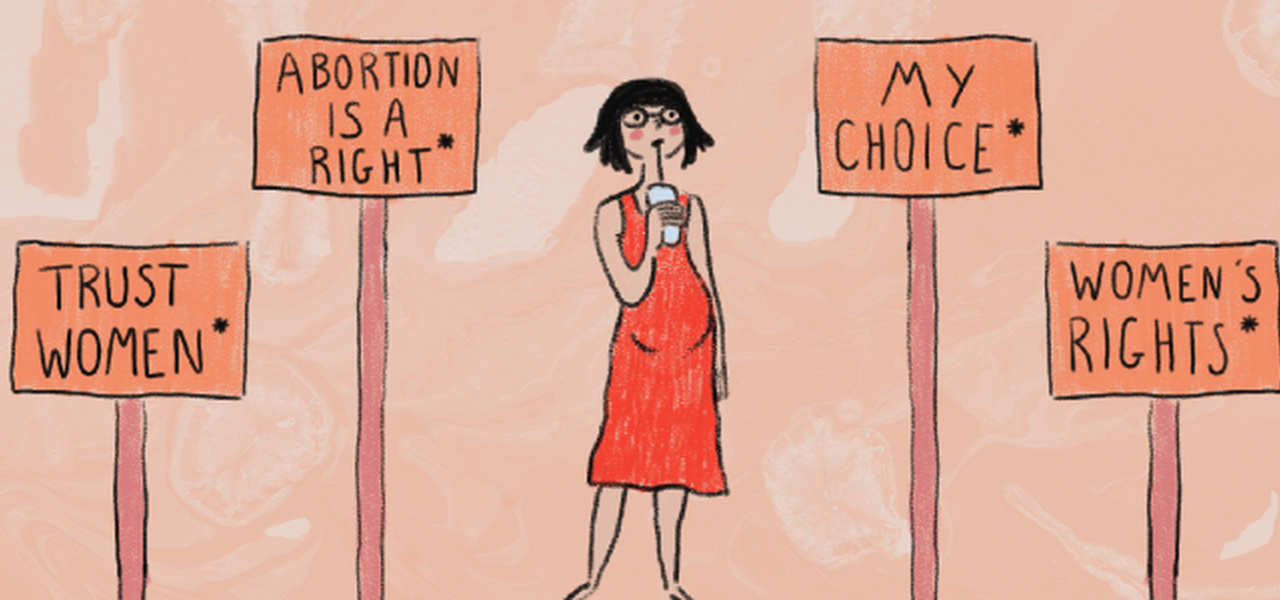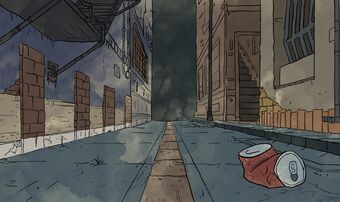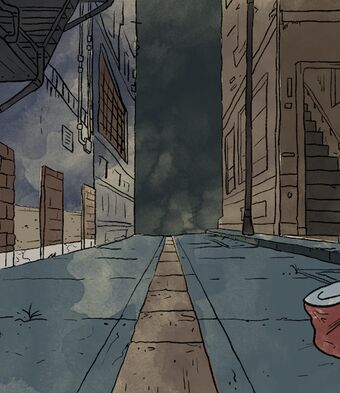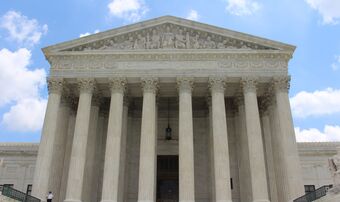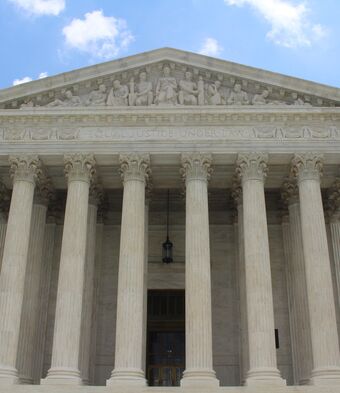In June 2025, MPs took a landmark step: their goal had become increasingly clear in recent years: they wanted to decriminalise abortion and make it out that it is just like any other form of 'healthcare'.
Although abortion has been legal in Britain for decades, campaigners argued that this didn’t go far enough — their final move piggybacked on top of the Crime and Policing Bill.
We’re told that decriminalisation will liberate women from the grip of an outdated, patriarchal system. No more needing two doctors’ approval. No more ‘paternalism.’ Instead, it’s all about freedom, autonomy, and finally trusting women to make decisions about their own bodies without fear of prosecution.
It sounds compelling — and that’s exactly the point. Clever marketing sells ideas, even when those ideas gloss over uncomfortable truths. But the reality of decriminalisation goes far deeper — and darker — than campaign slogans let on.
Here are six things the abortion lobby won’t tell you about one of the biggest changes to abortion law in 50 years:
1. Decriminalisation will mean abortion up to birth for any reason
Despite what may be commonly believed, the law does not permit abortion up to birth under any circumstances.
Our law on abortion is governed by sections 58 and 59 of the Offences Against the Person Act 1861 (OAPA).
The Abortion Act 1967 was introduced to allow abortion under specific Grounds. When it was enacted by Parliament, it was supposed to be narrow and it was never intended to allow abortion on request. In reality, those Grounds are interpreted very loosely and 98 percent of abortions are carried out on demand for pregnancies up to 24 weeks.
After 24 weeks, an abortion can only be obtained if there is a risk to the mother's life, or if the baby is diagnosed with a disability. A woman would be breaking the law if she had an abortion after 24 weeks because this recognises the point where a baby is viable outside of their mother's womb.
Decriminalisation, however, will change the law so that a woman will never break it, regardless of when she has an abortion, or why she is having it. Women will never be seen as bearing criminal responsibility. Even if medical professionals could still be liable for performing an abortion, women would be exempt.
The effect of this is plain: without any criminal law preventing women from procuring an abortion, this means abortion up to birth for any reason.
Some abortion advocates are transparent this is their aim: they do not regard a foetus as a person, and therefore do not believe it has rights that can trump a woman's. For example, former BPAS CEO Ann Furedi, a highly influential voice in the pro-abortion movement, has been clear she believes abortion should be permissible up to birth for any reason. Others, however, deny that this is what they're campaigning for and dismiss this as scaremongering.
But this reality bears thinking about: a baby could be terminated legally all the way to term.
A fully grown, fully developed baby: kicking; wriggling; hiccuping; reacting to music and light; practicing facial expressions; able to recognise its mother's voice; ready to take its first breath in the same air as you and I. Ready to experience all that life has to offer. It will have no protection at all.
And if this seems unthinkable—merely a theoretical example of how extreme the law could be—let us not forget this has actually happened already. In rare cases women have aborted babies very late in pregnancy, even when they might have been prosecuted. What is to stop this happening when it would be perfectly legal, albeit undoubtedly traumatic?
This is also emphatically not what the public want. In September 2023 polling, only 6 per cent of people polled want abortion to be available beyond 24 weeks. The majority of people actually support greater restrictions on abortion and a reduction in the 24-week time limit.
2. Babies have some status in law
The legal status of a baby in the womb is a concept that has flummoxed even the greatest minds in our legal system both domestically and internationally.
For many years, lawmakers avoided any definitive conclusion as to what exactly a baby is, and what rights it therefore deserves, when cases came before the courts.
Much of this was influenced by medical ethics. In ethics, the debate rages about whether a baby can be a biological human being and yet not a person, with the full rights entitled to born individuals. 'What makes something a person?' ask the ethicists. 'Is it rationality? Is it moral sensibility? Is it independence?'
The courts never reached a definitive answer. What is agreed so far is that a baby in the womb does not possess a legal personality in the same sense as a born individual.
However, it does have some status legally: it is recognised as a separate, biological human being and a unique organism. It is not an appendage of the woman, like her kidney or her arm. It is not ‘nothing’.
This is demonstrated by the degree of protection it is offered from termination. Current legislation relating to abortion demonstrates attempts to protect the preborn baby, not merely from indignity or maltreatment, but from destruction.
The fact that it is protected from abortion, save in specific circumstances, gives it a certain value and recognition under the law.
Under decriminalisation, this protection and recognition is gone—animals will have more protection than preborn babies. The more justification provided for a baby’s destruction, the more it is devalued in status and the less it is protected.
The double standard here is obvious: medical teams move mountains to save the lives of premature babies. Somehow that baby is valuable because it is wanted. Yet, babies in the womb who—for whatever reason—are not going to be given a chance at life can be terminated at any age. Somehow those babies are expendable.
This even goes against the Preamble to the UN Convention on the Rights of the Child, which states that the child “needs special safeguards and care, including appropriate legal protection, before as well as after birth”.
3. The pills-by-post scheme is the reason more women are currently being prosecuted
BPAS, Britain’s second largest abortion provider, have fronted the decriminalisation campaign under a number of different guises over the years. The current campaign makes much of the fact that women are being prosecuted for illegal abortions and, in one recent case, spending time in prison.
Before 2020, there had been only two prosecutions for women in the last 10 years under the OAPA – both in extreme circumstances when their babies were very late in term. One of these cases, Sarah Catt, involved a woman who took abortion pills at 39 weeks’ gestation, delivered the baby at home and buried the body.
The abortion lobby still claimed during this time that women were under constant threat of prosecution under the law — indeed a 2019 campaign by BPAS -‘Smile, You’re Knicked’, suggested a hoard of police officers might burst into a woman’s home at any moment.
However, in the last five years, there has actually been an increase in very public cases where women have been investigated and prosecuted under the OAPA.
One of these cases involved a woman named Carla Foster, who was given a 28 month custodial sentence for taking abortion pills which led to the stillbirth of a 32-34 week foetus. The Court of Appeal reduced the sentence to a 14-month suspended sentence.
In two other cases, women took abortion pills over the 24 week limit and had their cases dismissed. Another case known as the 'Oxford' case (where a woman took the pills at 31 weeks' pregnant) was dropped on public interest grounds. Several other cases are ongoing.
As well as these, there has been an increase in incidents reported where women have been investigated following a miscarriage. This has been deeply wrong. The Government needs to issue new guidance for police to clarify when and how they should investigate such cases.
All of the above has given ammunition to abortion campaigners: now they can point to specific examples to support their claim that the law is punitive for women.
But pro-abortion campaigners say they are unsure why there has been a sudden growth in cases being investigated. In a recent debate on decriminalisation, Stella Creasy, an MP who has consistently attempted to change the law on this issue, claimed she could not 'work out' why there had been an increase in prosecutions.
Of course, in reality, only a tiny minority of abortions ever come under investigation. The common expression applies here: hard cases make bad law. The law should not be changed because of a few cases, however emotive they are.
However, it is very likely that the reason for the surge now is the Government's pills-by-post scheme, introduced during the pandemic.
The scheme—which CARE warned about when it was introduced—means women are not seen in a clinic and do not receive an accurate gestational scan. This leaves them open to genuinely mistaking their stage of gestation but also means that a woman would be able to conceal her true stage of pregnancy.
In these cases, women are taking pills at late gestation, experiencing complications (because these pills are not meant to be taken at later stages without medical supervision) and going into hospitals where they are being reported to the police.
Almost every one of the cases which has been investigated has involved women taking pills they received in the post, taken when they were beyond the safe limit of 9 weeks, 6 days gestation.
The law in this area is supposed to have a stern face, but a kind heart, recognising the pain and emotional turmoil which many women will have gone through.
Instead, the blame must lie at the feet of the pills-by-post scheme. These tragic cases could be avoided by ensuring that any woman who wishes to take abortion pills must be seen in person for a gestational check.
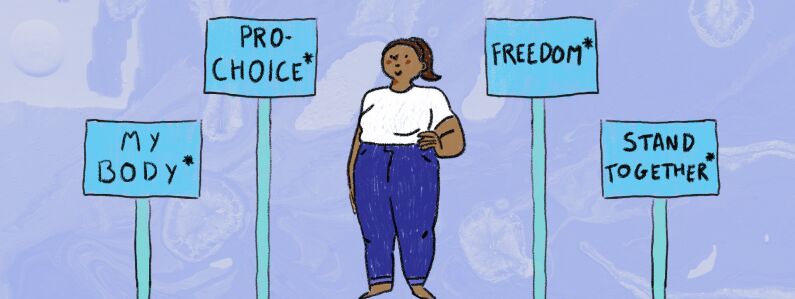
4. Decriminalisation will leave pregnant women unprotected
Legislation around abortion does not just put boundaries around the destruction (and protection) of foetal life, it also serves to protect pregnant women.
Section 58 OAPA provides that, if a pregnant woman is attacked or poisoned by a third party and she miscarries, her perpetrator can be prosecuted for the miscarriage. If section 58 of the OAPA is repealed, there will be no criminal penalty for her miscarriage pre-28 weeks.
If the Infant Life Preservation Act 1929 (another Act governing child destruction after 24 weeks) is repealed in future, there will be no criminal penalty for her miscarriage up to birth. It isn’t possible to ‘murder’ a baby in the womb, but it is still possible to secure a conviction for ‘child destruction’ if the baby is viable, under the 1929 Act.
The law already needs reforming because it is often difficult to prove that a perpetrator intended the baby’s death, and women want justice for their baby at any stage of gestation – not just after viability.
Furthermore, with the pills-by-post scheme the safeguard of a woman actually being seen in person for an abortion is removed. It is much easier for a woman to be coerced into taking abortion pills if all that is required is an assessment over the phone. Such was the case of Stuart Worby, who convinced a friend to phone up an abortion provider and pretend to be pregnant, so that he could obtain abortion pills to spike his girlfriend's orange juice—causing her to miscarry her much-wanted baby.
Decriminalisation just makes this much worse. There is no explicit offence of forced abortion elsewhere in the law which means that charges will instead be brought solely for injury to the pregnant woman’s body, such as murder, battery, GBH or poisoning offences. It won’t recognise the injury caused to her baby as an extension of her injuries.
Whilst this means the perpetrator will still be brought to justice, this patently will not be remotely satisfying for a mother; losing a much-wanted baby is devastating.
Some MPs in the past have introduced a 'non-consensual termination of pregnancy' offence to cover this gap in the law. Whilst this provision creates an offence at all stages of gestation, it doesn't act as an effective replacement for the current law because it removes all mention of the baby itself. The offence hinges entirely on whether the woman consents to the termination or not, rather than the inherent need to protect foetal life because of its innate value, as well as its value to the mother.
Any mum who loses her baby this way wants recognition of the little person living inside them. This is why parents of stillborn babies fought for years for birth certificates, proving that their baby existed before 24 weeks. It matters to women that their baby is recognised and that they receive justice.
5. Decriminalisation will devalue people with disabilities and allow sex-selective abortion
Ground E of the Abortion Act 1967 allows for abortions for ‘serious handicap’ up to birth. In practice, this has been liberally applied. There is evidence that abortions have been obtained for minor disabilities such as cleft palate or club foot. We have moved to a society where people with Down’s Syndrome have been almost eradicated. 74% of babies prenatally diagnosed with Down's are aborted in England and Wales.
As a result of this, we have seen a shift in society where, on the one hand, we claim to champion those with disabilities, and on the other hand we accept that they can be terminated purely on the basis of their disability. This sends the undeniable message that those with disabilities are less worthy of life.
This has even been noted by the Equality and Human Rights Commission who said that this “reinforces negative stereotypes of disability" and is incompatible with valuing disability and non-disability equally.”
This would only be made worse under decriminalisation. There would be no need for a medical professional to sign off on an abortion under one of the Grounds of the Abortion Act 1967. This means that abortions could legally occur for any disability—no matter how minor.
Not to mention that sex-selective abortion will also be allowed. Will we follow Canada, which has been described as a 'sex-selective haven' due to its lack of criminal framework around abortion? The abuses we see under the 1967 Act at present will not only become more widespread, they will be totally permissible under the law.
As pre-natal screening becomes more and more advanced, we will know much earlier on (and in much greater detail) the sex, genetic defects, or even potential future health risks in foetuses at a much earlier stage in gestation.
If abortions will be available for any reason, how are we to create a society in which discriminatory practices won’t become increasingly common?
6. Decriminalisation will make it harder to protect women from coercion and abuse
It is ironic that, in the fight to secure supposed gains for women’s equality, this change will lead to far greater risks for vulnerable women.
With one study showing that 1 in 7 women are coerced into an abortion by partners or family members, this is not an issue we can take lightly.
Since the law has been changed, it is still unclear what kind of framework will be in place to protect and safeguard such women after 24 weeks—particularly as medical professionals are still criminalised if they assist with an abortion after 24 weeks, unless it falls within one of the Grounds of the Abortion Act.
Currently under the pills-by-post scheme, there is no longer a requirement for women to be seen by medical professionals before 10 weeks. Not only do consultations mean pills don't fall into the wrong hands, but they also can serve as an early intervention in situations of abuse, as medical professionals are trained to spot signs of coerced abortion.
That safeguard has already been removed for women up to 10 weeks. And now, if women are able to procure abortions up to birth, this means women could be forced to have an abortion at any stage of gestation by their abuser, without every having the abuse spotted by a professional.
Some argue that it’s 'none of our business’ why a woman chooses to have an abortion. But what if she is a 16-year-old who has been manipulated by an older family member? What is she is a traumatised victim of domestic abuse? What if she is a victim of trafficking forced to have an abortion by her traffickers?
Decriminalisation perpetuates a no-questions-asked culture around abortion where women are not adequately safeguarded.
Don’t turn a blind eye
It’s so easy to ignore all of these factors in pursuit of the current zeitgeist of autonomy. But, if we truly claim to care about women, how can we ignore such serious and widespread consequences?
Please don’t believe that this is all about equality and 'choice'.
Talk to women who have suffered because of abortions, look up abortion videos and pictures, grapple with the ethical arguments, ask why so many women see pregnancy as a hindrance to their progression in a society and why some women are choosing abortion because of their financial circumstances. Seek the truth and pursue it ruthlessly. I hope you will see that decriminalisation is not part of a society that truly liberates women.
Don’t take anything you hear at face value – especially when it comes to abortion, which is often shrouded in euphemisms and false claims on both sides of the argument.
I trust women. I want the best for them, I want them to be kept safe from the harms that abortion causes them, and I want a society where women and babies are truly looked after.
I just don’t trust what abortion campaigners say.
Hopefully I’ve demonstrated that, quite frankly, neither should you.
